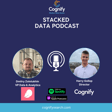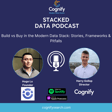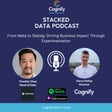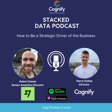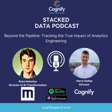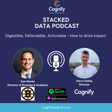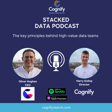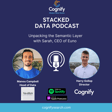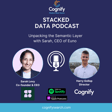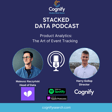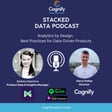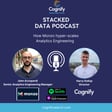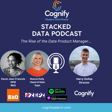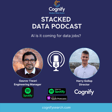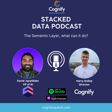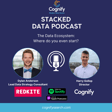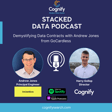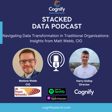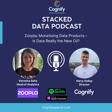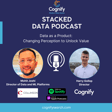
031 - Building a Modern Data Platform
In this episode of the Stacked Data Podcast, we're joined by Zach from Advancing Analytics to dive deep into the world of modern data platforms.
Zach walks us through his career in data and his current role at one of the UK's leading data consultancies. We explore what a modern data platform really is, why companies are investing in them, and what it takes to build one that’s scalable, reliable, and genuinely useful to the business.
From core stages and common pitfalls to ensuring business alignment and future-proofing, Zach shares the lessons he's learned delivering platforms for a wide range of clients. We also zoom out to talk about what it’s like working in data consulting—what skills matter, what a typical day looks like, and what makes someone successful at Advancing Analytics.
If you're interested in data architecture, consulting, or just want to understand what "modern" really means when it comes to data platforms—this one’s for you.
